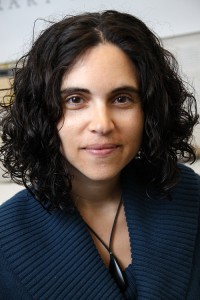While the new editors of Portland State’s seven student publications differ in their respective backgrounds and philosophies, they all share a couple of key similarities. Each gives credit to the power of the team that surrounds him or her, and each has a distinct vision for the year ahead.
James Turk
KPSU Radio

“The media has become so ubiquitous in our lives…it is a pervasive socializing agent. With so much power, it’s important we learn how to do good things with it,” said communication junior James Turk, programming director for KPSU. And that is what Turk has strived to do since he joined KPSU in early 2010. Since then, he has left his stamp on the radio station in a multitude of ways: connecting DJs with in-studio opportunities as a music director and adding new content as a programming director. He has also created unique opportunities for DJs to interact with listeners.
His foremost goal for next year is to return KPSU, which now primarily exists online, to its original FM format. “It will be a lot of work, but the rewards vastly outweigh the costs,” he said. Turk looks forward to “pushing our staff into a higher gear and seeing what we are capable of” by utilizing KPSU’s wealth of resources through an organized vision. After graduating, he hopes to continue to work in radio. “Preferably on the commercial-free end of the dial,” he said.
“The KPSU radio station manager runs a 24-hour streaming radio station at www.kpsu.org and a short-range FM-band radio station with diverse content,” said student publications adviser Judson Randall.
Deena Anreise
Pathos Literary Magazine

Deena Anreise, a graduate student pursuing a Master of Arts in Writing: Book Publishing, wants to make Pathos pop when she becomes its editor this fall. Anreise, who is currently the magazine’s assistant editor, has a broad vision for its future. As a graphic design certificate student at Pacific Northwest College of Art, a music journalist with Oregon Music News and a contributor to several other publications, Anreise is looking to bolster Pathos’ visual and literary feel. She wants to make the literary magazine “an object in and of itself” by bringing a sense of uniformity to the magazine’s look.
“I want to really focus on the design elements so that all of the submissions we choose are put in a way that is not only exciting design-wise but also complement each other on the page,” she said. Anreise also hopes to get submissions that “push the envelope” and “open up the field of appreciation for what is being done here on campus.” She sees a number of possiblepost graduation paths for herself, including creative directing, editing or working with an advertising agency or marketing firm.
“The Pathos Literary Magazine editor manages a thrice-yearly, 1,000 circulation literary magazine that publishes only Portland State University student work,” according to Randall.
Justin Brown
PSU.TV

For business management and leadership junior Justin Brown, the opportunity to manage PSU.TV presented itself at a definitive time. Brown, who plans on starting his own business in video production, saw in the position the chance to “bring people together for the sole purpose of creating amazing content” while also preparing for the sorts of responsibilities he would have running his own company.
Brown has an applied arts degree from the Art Institute of Seattle and has volunteered with productions in Portland and Seattle. In his work as a senior editor for PSU.TV, he had the opportunity to teach basic camera classes, assist students with their productions and engage in the post-production editing process. “I personally enjoy the creative aspect of production,” Brown said. He added that he finds inspiration in presenting the story of others. Through his management position, Brown is looking forward to restructuring PSU.TV and define its role as a publication by tapping into the news arena.
“I’d like to see PSU.TV on the map among universities nationwide,” he said.
“The PSU.manager runs a twice-weekly streaming video news and feature production,” Randall said.
J.T. Howard
Rearguard
Film studies junior J.T Howard wants to keep up what he calls “the long tradition that the Rearguard has of providing a place for students to voice their concerns.”
“I like having this position because something as simple as choosing the content you get to write about is a privilege,” Howard said, although he wasn’t always given this opportunity when he worked as a roving correspondent for publications based in Vancouver, British Columbia, and New York. Since joining the Rearguard two years ago, Howard has contributed content to every issue of the publication while helping other students grow as writers. Being surrounded by talented people fuels own his passion, he said.
“I like having a crew that is passionate about what they work on and sticks around because of that passion. It’s contagious,” he said. As editor-in-chief, Howard hopes to continue the Rearguard’s goals while focusing on expanding its web content. After graduation, he intends on continuing both freelance work and a career in film-making. He would even start his own publication, if he gets the chance. “It’s all about the opportunities one comes across,” he said.
“The Rearguard editor oversees the monthly, 2,500 circulation, publication of an alternative viewpoint,” according to Randall.
Chelsea R. G. Kachman
The Portland Review
Searching for that “ever-elusive golden material” was an essential learning experience, said Chelsea Kachman, a graduate student pursuing a Master of Fine Arts in Poetry and a Master of Arts in English Literature. Kachman, who ran an online publication during her undergraduate studies and did public relations/media work for a nonprofit, discovered The Portland Review when she started researching MFA programs. She volunteered for the Review by reading through poetry submissions and streamlining its Tumblr blog.
As its next editor-in-chief, Kachman is excited about engaging the Review with the “unusually fantastic writing community here in Portland.” She enjoys synthesizing a variety of voices and perspectives into a cohesive plan. Kachman hopes to increase its online presence and sales, organize readings and other community activities, and recruit both established and new voices. “We are thinking about putting together an advisory board as well as adding a Book Review Editor to the staff,” she said.
What is she pursuing after graduation? “That seems to be the question this term!” She said, adding she’s considering getting a doctorate or going into teaching. “But I know for certain that I want to focus on my poetry above all else.”
“The Portland Review editor operates a thrice-yearly, 500-circulation literary review that publishes fiction and art from submissions originating locally, nationally and internationally,” Randall said.
Sasha Chedygov
Portland Spectator
“In October 2010, I discovered the Spectator, and I immediately fell in love with its glossy paper, vivid pictures and colorful headlines. We were meant to be,” said Editor-in-Chief and economics junior Sasha Chedygov. After working as a writer for the Spectator for several months, he was hired as its editor-in-chief in April 2011. Chedygov, who had held that same post for his high school newspaper, wanted not only to make improvements to the magazine but to “turn it into something completely new.” This included major shifts in its philosophy, aesthetic and content. Under Chedygov, not only did the magazine shed its conservative association, but it expanded its scope of content to include Portland and the outside world.
“I do not believe student publications should be constrained to only writing about their campus,” he said. Chedygov, who will be pursuing software development after graduating, credits his time at the Spectator as a tremendous learning opportunity that bestowed him with widely applicable skills such as writing, management, planning and communication. “Ultimately, student publications are the only groups on campus that produce a product, and that’s what fuels me: producing a product that others will get to enjoy for free,” he said.
“The Portland Spectator editor oversees a monthly, 2500-circulation magazine of political commentary,” according to Randall.
Erick Bengel
Vanguard
“There have been articles in each section of the Vanguard this year that have the precision and beauty of great sonatas and stained glass windows,” said current Arts and Culture Editor Erick Bengel, who has been working for the paper since fall 2010. “And knowing that I got to be a part of the process that brought these pieces to the public is so incredibly gratifying,” he added.
Bengel, who finds great inspiration in managing people, is most looking forward to “drafting [his] dream team” of section editors and staff. For the coming academic year, he wants to increase the number of reporters on staff by talent scouting and “really evangelizing the fact that writing for a college newspaper is like no other experience.”
A post-baccalaureate student majoring in political science and philosophy, Bengel completed a Snowden journalism internship last year and was a full-time, paid reporter for The Daily Astorian. As far as career plans, Bengel is exploring a number of possible paths, including enrolling in a journalism graduate program, teaching philosophy and entering the journalism field as an assignment reporter. “In any case, I want to be surrounded by great reading material and bright co-workers while writing and/or editing for a living,” he said.
“The Vanguard editor oversees PSU’s twice weekly, 5,000-circulation newspaper with a staff of nearly 60 persons,” according to Randall.

